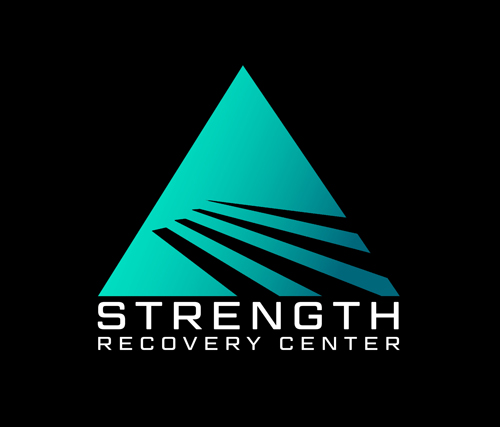Understanding Addiction in MA: An Overview of Treatment Options
Addiction is a complex disease that affects individuals physically, mentally, and emotionally. Treatment options for addiction in Massachusetts are diverse, catering to a range of needs and preferences. Effective treatment often begins with a thorough assessment, which helps to identify the specific type of addiction and the best course of action. Common options include inpatient rehabilitation, outpatient treatment, and medication-assisted treatment (MAT). These options can vary widely in terms of structure and intensity, ensuring that individuals can find a program that suits their unique circumstances in Massachusetts.
In Massachusetts, inpatient rehabilitation provides a controlled environment where individuals can focus on recovery away from everyday triggers. This type of facility offers 24/7 medical support, therapeutic activities, and group counseling sessions. Outpatient programs, on the other hand, allow individuals to maintain their daily routines while attending therapy sessions. These programs can be less intensive than inpatient options but are still effective for those who have a strong support system at home. MAT combines medications with counseling and behavioral therapies, making it a preferred choice for many individuals battling substance use disorders in Massachusetts.
Each of these treatment options aims to help individuals confront the underlying causes of their addiction while equipping them with the tools necessary for long-term recovery. Finding the right combination of therapies can enhance the likelihood of achieving and maintaining sobriety. As the awareness around addiction continues to grow, Massachusetts has increased its focus on providing comprehensive care tailored to the needs of individuals, ensuring that everyone has access to a pathway toward recovery.
Signs of Addiction: When to Seek Help in Massachusetts
Recognizing the signs of addiction is crucial for individuals and their loved ones in Massachusetts. Early intervention can significantly improve the chances of successful recovery. Common signs include changes in behavior, such as withdrawal from family and friends, neglecting responsibilities, and engaging in risky activities. Physical symptoms, such as weight fluctuations, changes in sleep patterns, and frequent health issues, can also indicate a problem. Emotional signs may manifest as increased anxiety, depression, or mood swings. Understanding these indicators can help guide individuals toward seeking the help they need in Massachusetts.
It is important to note that addiction can manifest differently in each person. Factors such as the type of substance used, the duration of use, and individual circumstances all play a role in how addiction affects someone. For instance, someone addicted to alcohol may exhibit different behaviors compared to someone addicted to opioids. Recognizing these varied manifestations of addiction can assist families and friends in approaching the situation with empathy and understanding, ultimately leading to more effective intervention strategies in Massachusetts.
If you or someone you know exhibits several signs of addiction, it is vital to seek help promptly. The longer addiction remains unaddressed, the more entrenched it can become. Resources like Strength Recovery Center in Weymouth, MA, provide a supportive environment for individuals ready to take the first step toward recovery. Their experienced team can guide you through the assessment process, helping to determine the most suitable treatment options available in Massachusetts.
Types of Addiction Treatment Facilities in Massachusetts
Massachusetts offers various types of addiction treatment facilities to ensure that individuals can find the right level of care for their needs. Inpatient treatment centers provide a structured environment for those requiring intensive support. These facilities are staffed by professionals who can offer round-the-clock care, including medical supervision, therapy sessions, and group activities aimed at promoting recovery. Inpatient care is particularly beneficial for individuals with severe addictions or co-occurring mental health disorders, allowing for comprehensive treatment in a safe space.
Outpatient treatment centers also play a significant role in the addiction care landscape in Massachusetts. These facilities allow individuals to participate in therapy while still living at home. Outpatient programs often include individual counseling, group therapy, and educational sessions focused on relapse prevention. This type of care can be especially suitable for those who have completed inpatient treatment or for individuals with less severe addictions who may not require round-the-clock supervision. It enables clients to integrate their recovery into their daily lives while still receiving essential support.
Additionally, specialized facilities focusing on specific populations or types of addiction can be found throughout Massachusetts. For example, there are programs specifically designed for adolescents, women, and individuals with dual diagnoses. This specialization helps ensure that treatment approaches are relevant and effective for various demographics. By offering a range of treatment options, Massachusetts aims to meet the diverse needs of its residents in their journey toward recovery.
Evaluating the Quality of Addiction Care Providers
When seeking addiction care options in Massachusetts, evaluating the quality of care providers is essential. Accreditation from organizations like the Joint Commission or the Commission on Accreditation of Rehabilitation Facilities (CARF) serves as an important indicator of a facility’s commitment to high standards of care. These accreditations ensure that addiction treatment facilities adhere to specific guidelines and protocols, which promotes safety and efficacy in their services. Researching a provider’s reputation can also reveal valuable insights into the experiences of past clients, helping individuals make informed decisions.
Another vital factor to consider is the qualifications and experience of the staff at the treatment facility. Qualified professionals, including licensed therapists, counselors, and medical personnel, should be an integral part of any addiction care program in Massachusetts. The presence of experienced staff members not only contributes to the quality of care provided but also instills confidence in individuals seeking help. Look for facilities with staff members who have specialized training in addiction treatment and a proven track record of helping clients achieve successful recovery outcomes.
Additionally, the range of services offered by addiction care providers can greatly impact the overall effectiveness of treatment. Facilities that incorporate evidence-based practices, such as Cognitive Behavioral Therapy (CBT) or Dialectical Behavior Therapy (DBT), alongside medication-assisted treatment, often deliver more comprehensive care. It’s beneficial to ask potential providers about their treatment methodologies and how they tailor care to meet individual needs in Massachusetts. A well-rounded approach that includes therapeutic counseling, medical support, and holistic healing practices is likely to yield better long-term results.
Financial Considerations: Costs and Insurance Coverage
Understanding the financial aspects of addiction care is crucial for individuals seeking help in Massachusetts. Treatment costs can vary significantly based on the type of facility, the duration of the program, and the services included. In general, inpatient programs tend to be more expensive due to the level of care provided, while outpatient programs may offer a more affordable alternative. It’s important to research the costs associated with different treatment options to find a program that fits within your financial means while still providing quality care.
Insurance coverage can play a significant role in managing the costs of addiction treatment in Massachusetts. Many insurance plans offer coverage for substance use treatment, but the extent of that coverage can vary widely. It’s advisable for individuals to contact their insurance providers to clarify what services are covered, including inpatient, outpatient, and detox services. Understanding your insurance benefits can help minimize out-of-pocket expenses and make treatment more accessible. Facilities like Strength Recovery Center can assist you in navigating insurance options and verifying coverage for their programs.
For those without insurance or struggling to afford treatment, several resources can provide financial assistance or sliding-scale payment options. Government programs and nonprofit organizations often offer support for individuals in need, helping them access necessary addiction care services. By exploring these financial considerations and available resources, individuals seeking help for addiction in Massachusetts can feel more empowered to take the first step toward recovery without being overwhelmed by financial burdens.
Resources for Finding Local Addiction Care in Massachusetts
Finding local addiction care options in Massachusetts can be a challenging task, but numerous resources are available to assist individuals in their search. One of the most effective ways to start is by reaching out to hotlines or local support organizations that specialize in addiction treatment. These resources often have knowledgeable staff who can provide information about available programs, treatment facilities, and support services in your area. The Massachusetts Department of Public Health also offers a wealth of information on addiction treatment resources and can be a valuable starting point for individuals seeking help.
Online directories and databases specifically designed for addiction services can further streamline the process of finding care in Massachusetts. Websites that compile lists of licensed treatment providers, along with detailed descriptions of their services, can help individuals quickly identify suitable options. Many of these platforms allow users to filter results based on location, type of treatment, and specific needs. This accessibility can significantly reduce the time and effort required to find appropriate care.
Strength Recovery Center in Weymouth, MA, is also a dedicated resource for individuals seeking help with addiction. Their experienced team can provide guidance on treatment options and assist individuals in navigating the process of entering care. By contacting facilities directly, individuals can ask questions and gain a better understanding of the available programs. Taking the initiative to explore different resources can pave the way for successful recovery in Massachusetts, ultimately leading to a healthier and more fulfilling life.
Don’t hesitate to reach out for help. Call Strength Recovery Center in Weymouth, MA today to learn more about your addiction treatment options and how they can support you on your journey to recovery. Your new life awaits.




